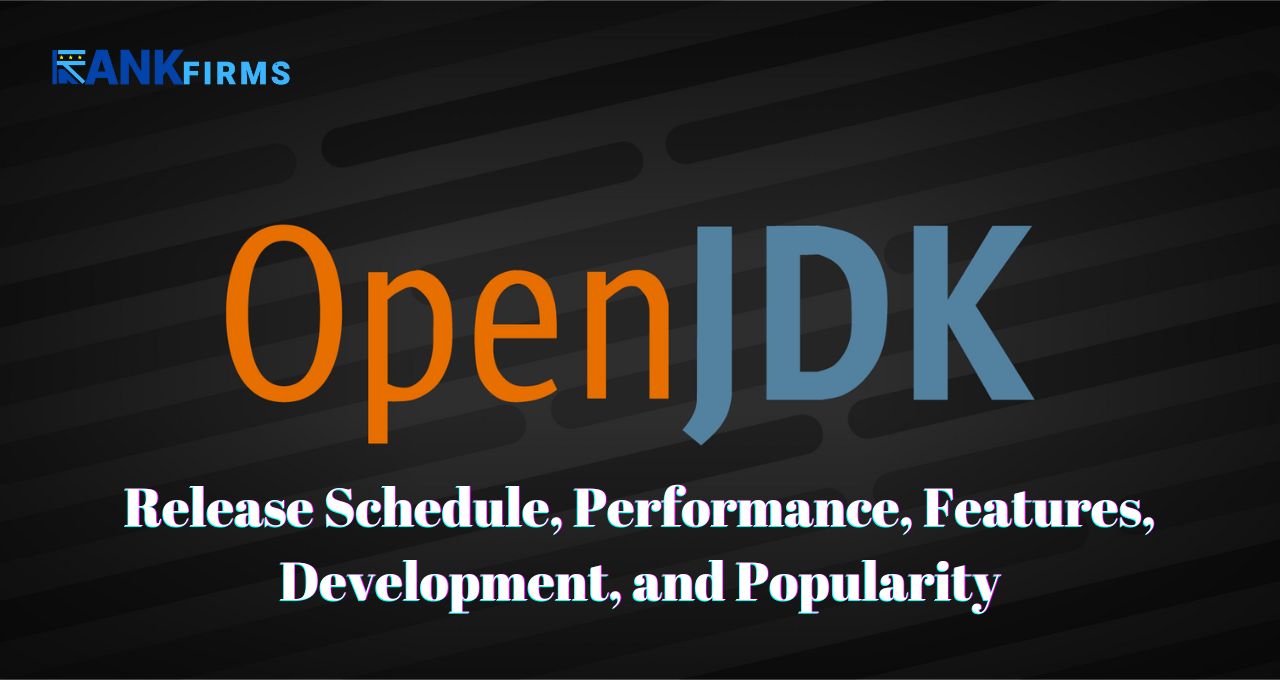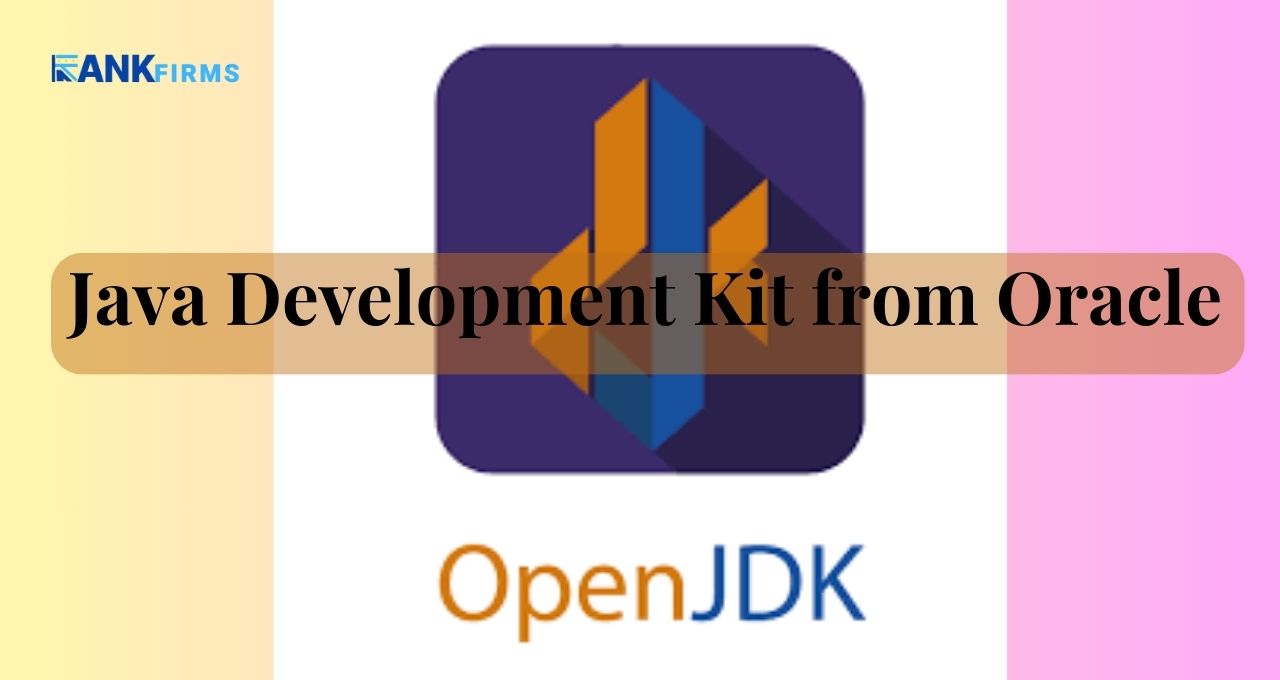The full form of OpenJDK is the Open Java Development Kit. Java Platform offers free implementation of this open-source as a Standard Edition (SE). Many leading OpenJDK development companies leverage this technology to deliver robust and scalable Java applications.
Here’s a breakdown of what it means:
Open-source:
Software development companies can use this source code for free to inspect, modify, and distribute. OpenJDK is also meant for the community to collaborate and contribute to different projects.
Java Development Kit:
Companies can use the tools and libraries to develop and run Java applications, such as the Java compiler, the Java Runtime Environment (JRE), and other utilities.
OpenJDK is the official reference implementation of Java SE since version 7. A huge community of developers manage and maintain this platform, including Oracle, Red Hat, Azul Systems, IBM, Microsoft, and many others.
Here are some key points about OpenJDK:
- No licensing fees are needed to download or use Open JDK.
- Easy modification is allowed for every developer or company to adjust as per their needs.
- All operating systems like Linux, Windows, and macOS support open JDK.
- Get regular updates and new features to avoid bugs and troubleshooting.
OpenJDK: Release Schedule, Performance, Features, Development, and Popularity

1. Release Schedule:
OpenJDK:
- Frequency: You get a new feature every six months.
- Benefits:
- Get introduced to new features with rapid iteration.
- Get quick and easy access to bug fixes and timely security updates.
- OpenJDK makes every developer up-to-date with the latest advancements in Java.
- Drawbacks:
- The frequency of the updates has lagged, the community should release more frequent updates and testing of the applications.
- Open JDK is only suitable for short-term projects who so not want a stable and long-term environment. Hence it is more common and adopted by newbies and freelance developers.
2. Performance:
OpenJDK:
- Generally comparable performance to Oracle JDK for most Java applications.
- Have steady and measured performance. Is suitable for less critical environments.
3. Features:
OpenJDK:
- Leverage all core features of the Java SE platform for quick implementation.
- New features are continuously added with each release.
- For advanced features like Java Flight Recorder (JFR) and Mission Control developers should be experts in using OracleJDK.
4. Development:
OpenJDK:
- Developed through a collaborative effort by the OpenJDK community.
- Open-source development model allows for rapid innovation and contributions from diverse developers.
- IT services companies using OpenJDK benefit from the collective expertise and resources of the Java community.
5. Popularity:
OpenJDK:
- Most popular Java development kit due to its:
- Free and open-source nature hence it is popular among budding developers and small, scaling companies.
- With frequent updates and access to new features, it has become a preferred choice for budding entrepreneurs.
- Strong community support and collaboration also make it preferable for developers globally.
OpenJDK is often the preferred choice due to its flexibility and accessibility. Hence it is widely used by individual developers, open-source projects, and large enterprises.
Oracle JDK Explained

Oracle JDK, also known as the Java Development Kit from Oracle, is a software development environment that uses Java programming language for mobile applications. It provides everything you need to develop, compile, debug, and run Java applications.
Here’s a breakdown of its key aspects:
1. What it includes:
Java compiler:
This translates Java code into bytecode to execute Java Runtime Environment (JRE).
Java Runtime Environment (JRE):
Provides the environment for running Java applications.
Additional tools and libraries:
Oracle JDK offers various tools like the Java debugger, documentation generator, etc.
Licensing:
Oracle JDK uses the Oracle Technology Network License Agreement for Oracle Java SE, which allows:
- Free use for personal and development purposes.
- Paid licensing for commercial purposes.
2. Oracle JDK: Features
Core Features:
Standard Libraries:
Includes a vast collection of pre-written classes and packages covering various functionalities like networking, I/O, graphics, and more.
Java Development Tools:
Provides tools for debugging, profiling, and analyzing Java applications, such as:
Debugger:
Allows you to step through code, inspect variables, and identify issues.
Profiler:
Helps you analyze the performance of your application and identify bottlenecks.
Javadoc:
Generates documentation for your Java code.
Also Read: Kotlin vs Java App Development: A Comprehensive Comparison
2. Additional Features:
Java Flight Recorder (JFR):
JFR provides detailed performance and profiling data for Java applications. Moreover, it allows you to record and analyze events within the JVM that assist you in identifying performance issues and optimizing your code seamlessly.
Mission Control:
Oracle JDK gives you comprehensive monitoring and management capabilities for your Java applications. It enables you to track resources, and their usage, while analyzing application health, and diagnosing problems in real-time.
Java Management Extensions (JMX):
It furnishes you with a suitable framework for managing and monitoring Java applications remotely. It allows you to access and control various aspects of the JVM and running applications through MBeans (Management Beans).
Security Features:
Oracle JDK is integrated with features like code signing and security manager to enhance the security of Java applications.
Long-Term Support (LTS):
- Oracle offers LTS versions of the JDK, which receive extended maintenance and security updates for several years (typically 3-5 years). This ensures stability and predictability for critical applications that require long-term support.
Performance:
- You get some performance advantages with Oracle JDK in specific situations as it releases features like additional optimizations and tweaks. These optimizations can improve the efficiency of the JVM leading to faster execution of Java applications.
Development:
- The Oracle Corporation created Oracle JDK. This not only benefits developers but also companies looking for expert hands to develop Java applications with the help of needful resources.
Since Java 11, both Oracle JDK and OpenJDK have undergone significant changes. Here’s a breakdown of the key developments:
Emergence of Java 11
1. Feature Convergence:
OpenJDK gains “commercial” features:
Traditionally, some features like Java Flight Recorder (JFR) and Mission Control were exclusive to Oracle JDK. However, since Java 11, these features have been integrated into OpenJDK, making both platforms more feature-rich and functionally similar.
Essentially identical builds:
From Java 11 onwards, the differences between Oracle JDK and OpenJDK builds have become minimal. Both platforms offer the same core features and functionalities, with only minor variations in packaging and branding.
2. Other Changes:
Continued new features and improvements:
Both Oracle JDK and OpenJDK have seen a steady stream of new features and improvements with each release since Java 11. These include enhancements in areas like performance, security, language syntax, and developer tools.
Focus on modularity and flexibility:
Both platforms emphasize modularity and flexibility, allowing developers to build custom runtimes using tools like jlink. This enables more efficient and tailored Java environments for specific needs.
Regular updates and security patches:
Both Oracle JDK and OpenJDK receive regular updates and security patches, ensuring the platform remains stable and secure for development and production use.
Difference between OpenJDK, Oracle JDK, and AdoptOpenJDK
| Feature | OpenJDK | Oracle JDK | AdoptOpenJDK |
| License | GPLv2 with Classpath Exception | Oracle Binary Code License | Varies (GPLv2 with Classpath Exception, others) |
| Cost | Free | Free for personal use; Commercial license required for production use and support | Free |
| Source Code Availability | Fully Open Source | Partially Open Source | Fully Open Source |
| Support | Community Support | Paid Support (with subscription) | Community Support (AdoptOpenJDK) |
| Release Cycle | Every 6 months | Every 6 months | Every 6 months (aligned with OpenJDK) |
| Performance | Comparable to Oracle JDK | Optimized for performance and stability | Comparable to OpenJDK and Oracle JDK |
| Security Updates | Provided by Community | Timely and regular updates | Timely and regular updates |
| Build Variants | Standard | Oracle-specific optimizations | Multiple distributions (HotSpot, OpenJ9) |
| Commercial Features | None | Includes commercial features like Mission Control | None (some distributions might include extra tools) |
| Binary Availability | Binaries provided by various vendors | Binaries provided by Oracle | Binaries provided by Adoptium (formerly |
Also Read: Python vs. Java: Performance, Versatility, and Ease of Learning

Real-World Use Cases: Companies Using OpenJDK vs. Oracle JDK
Here’s a breakdown of companies using OpenJDK and Oracle JDK, highlighting their typical use cases:
1. OpenJDK:
Adopted by large companies:
Many large companies, such as Netflix, Red Hat, IBM, and Google, use OpenJDK for their internal applications and services. These companies value the flexibility, cost-effectiveness, and community support offered by OpenJDK.
Customization and Optimization:
Some companies, like Alibaba, prefer OpenJDK for its open-source nature, allowing them to customize and optimize the JVM for their specific needs.
2. Oracle JDK:
Financial institutions:
Banks and financial institutions often rely on Oracle JDK for their high-frequency trading systems, risk management solutions, and other mission-critical financial operations. The guaranteed support and performance optimizations offered by Oracle JDK are essential for these applications.
Companies with strict security requirements:
Organizations with stringent security needs may choose Oracle JDK for its advanced security features and timely security updates.
3. OpenJDK
| Company/Organization | Use Case | Details |
| Amazon | Amazon Corretto | Amazon Corretto is a no-cost, multiplatform, production-ready distribution of OpenJDK, used internally and offered to customers. |
| Android Development | Google uses OpenJDK as the basis for the Android development environment, ensuring compatibility and open-source collaboration. | |
| Red Hat | Enterprise Products and Middleware | Red Hat builds and supports OpenJDK in its enterprise products, including Red Hat Enterprise Linux and middleware solutions. |
| Backend Services | Twitter has adopted OpenJDK for their backend services to ensure stability and performance without the need for commercial licensing. | |
| Alibaba | E-commerce Platform | Alibaba uses a customized version of OpenJDK for their large-scale e-commerce operations, optimized for their specific needs. |
4. Oracle JDK
| Company/Organization | Use Case | Details |
| Oracle | Enterprise Solutions and Products | Oracle uses Oracle JDK in its enterprise solutions, offering commercial support and advanced features for its customers. |
| IBM | Enterprise Software and Cloud Services | IBM uses Oracle JDK for certain enterprise software solutions, while also offering its own OpenJ9 JVM for specific use cases. |
| SAP | Enterprise Resource Planning (ERP) Systems | SAP uses Oracle JDK in its ERP systems, ensuring compatibility and performance with Oracle’s enterprise support. |
| Equifax | Financial Services and Credit Reporting | Equifax uses Oracle JDK for its financial services applications, leveraging Oracle’s support and commercial features. |
| NCR Corporation | Point of Sale (POS) Systems | NCR Corporation uses Oracle JDK in its POS systems to ensure reliable and secure transactions in retail environments. |
In summary:
1. OpenJDK:
Ideal for individual developers, open-source projects, and non-critical applications where flexibility and cost-effectiveness are priorities.
2. Oracle JDK:
Preferred for enterprises running critical applications in production environments, particularly in financial institutions and organizations with strict security requirements.
It’s important to note that this is not an exhaustive list, and companies may choose either OpenJDK or Oracle JDK based on their specific needs and priorities.







